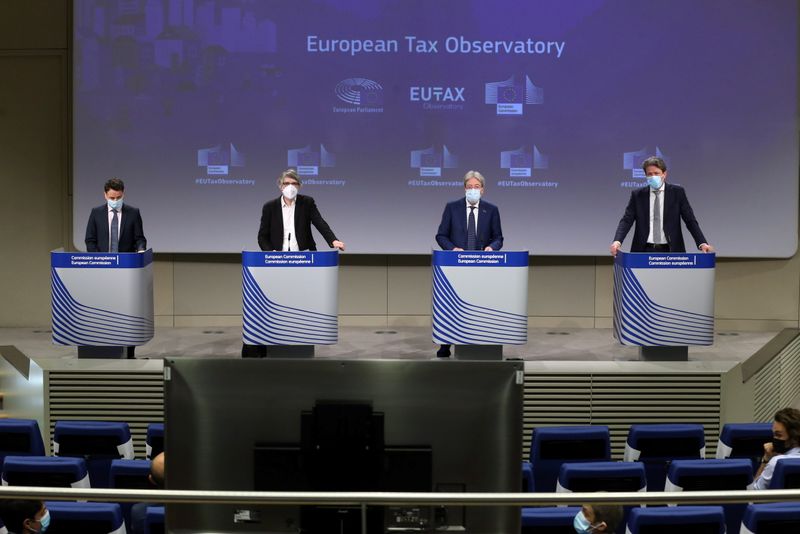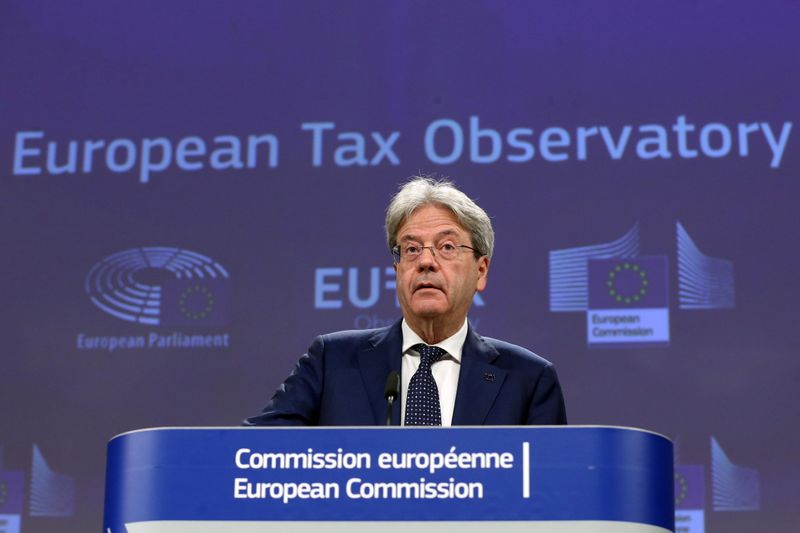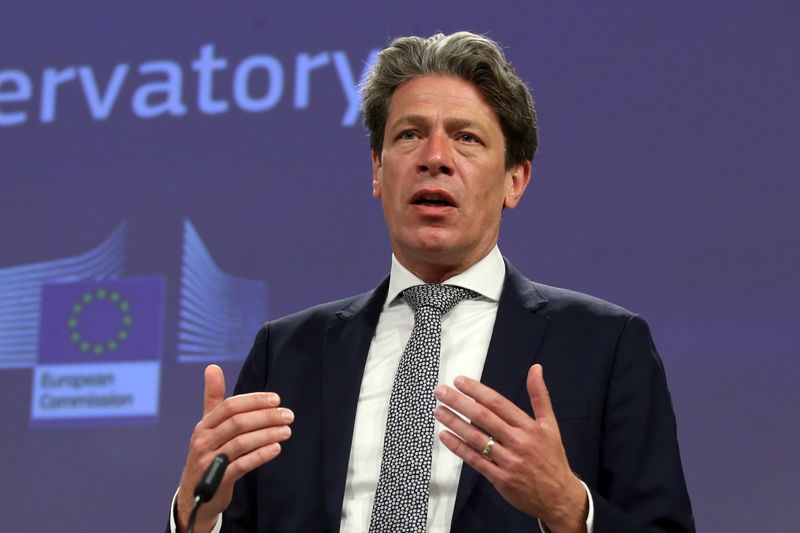BRUSSELS (Reuters) – European Union government and parliament negotiators reached a deal on Tuesday on rules that will force large multinational companies to disclose how much revenue and tax they pay in the 27-nation bloc and how much in countries considered tax havens by the EU.
The new law, proposed by the European Commission in 2016, is part of the EU’s efforts to fight tax avoidance by large international companies at a time when the EU badly needs cash to finance an economic recovery after the COVID-19 pandemic.
Under the new law, multinational corporations with a turnover of more than 750 million euros ($916 million) annually in two consecutive years will have to declare profits, tax and number of employees in EU countries and in countries on the EU list of non-cooperative jurisdictions.
But data on tax paid in other countries outside the EU and not on the tax havens blacklist will only be given in aggregated form as EU governments did not want to agree to a more detailed country-by-country breakdown.
The Oxfam charity group criticised that saying many of the world’s tax havens were not on the EU list of non-cooperative jurisdictions and therefore would avoid scrutiny.
“Transparency for only the 27 EU member states and the 21 currently blacklisted or greylisted jurisdictions means keeping corporate secrecy for over 3 out of 4 of the world’s nearly 200 countries,” the Oxfam charity group said.
“EU legislators have granted multinational corporations plenty of opportunities to continue dodging taxes in secrecy by shifting their profits to tax havens outside the EU, like Bermuda, the Cayman Islands, and Switzerland,” Oxfam’s tax expert Chiara Putaturo said.
She said the deal also offered companies a reporting exemption for commercially sensitive information for five years, providing a way to avoid disclosure and noted the large turnover requirement would exclude up to 90% of multinationals.
But some members of the European Parliament who negotiated the deal said it would still help make the tax system fairer.
“These tax transparency measures will help to ensure that multinational companies pay their fair share and can bring some fairness to how they operate,” said Greens MEP Ernest Urtasun of the parliament’s economic and monetary affairs committee.
According to the Tax Justice Network think tank, EU countries are responsible for 36% of tax lost globally to corporate tax abuse, costing countries worldwide over $154 billion every year as profits are shifted to low tax jurisdictions like Ireland, Luxembourg and the Netherlands.
The text of the agreement must now go through formal adoption in two European Parliament committees and the parliament’s plenary and in the Council of EU governments.
($1 = 0.8189 euros)
(Reporting by Jan Strupczewski; editing by Jonathan Oatis)
























